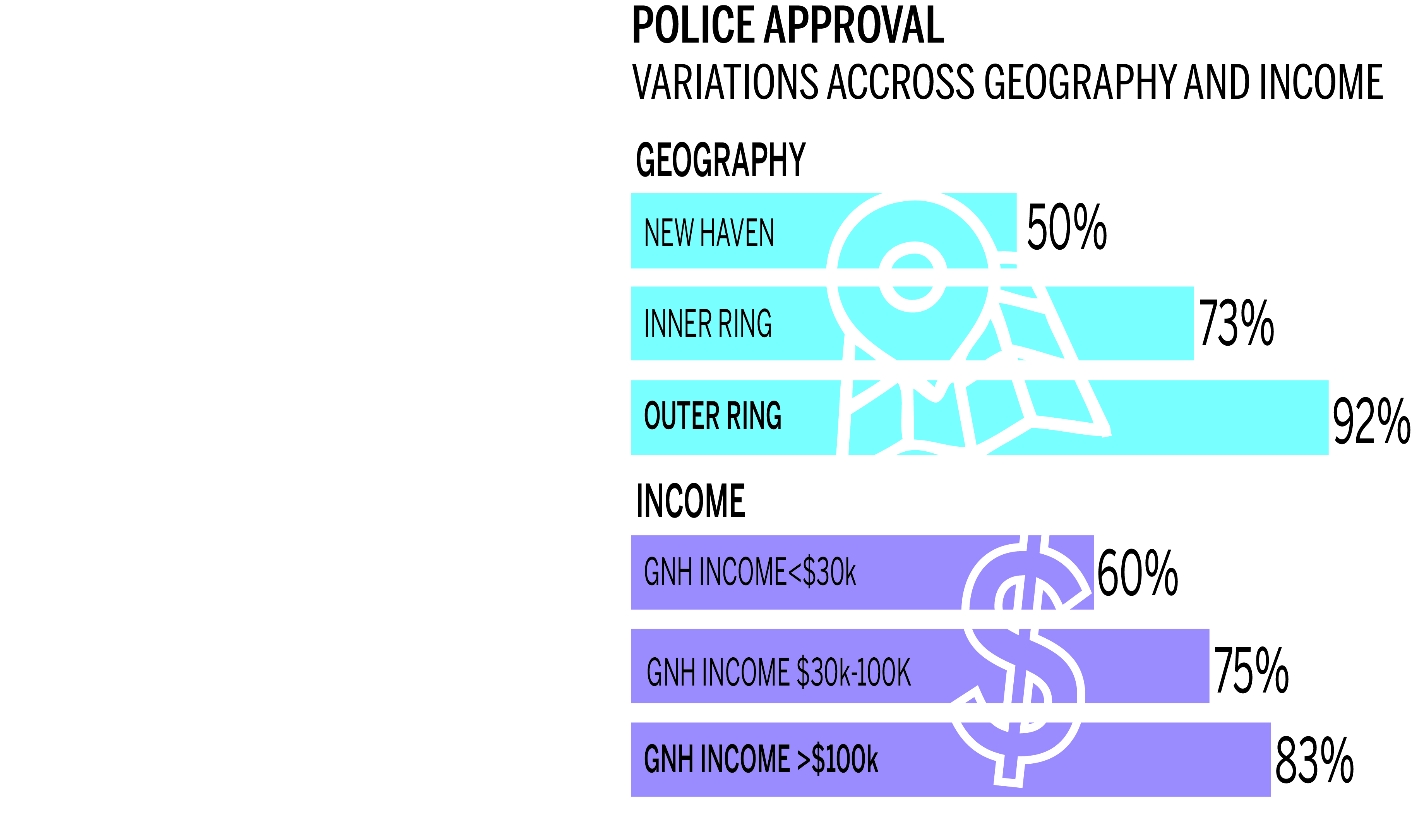
As recently released data indicates mixed public approval of the New Haven Police Department, NHPD officials and leaders of Mayor Toni Harp’s Community and Police Relations Task Force are grappling with how to increase officer diversity — the central issue of the discussion on strengthening trust between the NHPD and residents.
According to the Greater New Haven Community Index 2016, which DataHaven released on Oct. 10, public perception that the police force does a “good job” diverges based on place of residence, income and age level. In the city of New Haven, only 50 percent of those surveyed approved of the NHPD’s work. In contrast, 92 percent of residents in Elm City suburbs such as Branford and North Haven responded that their local police force does a good job. In the Greater New Haven area, which includes New Haven proper as well as 12 surrounding suburbs, older people and those with greater incomes are far more likely to approve of the police, the data indicated.
The New Haven Police Department has prioritized efforts to build relationships with community members over the past few weeks. Officers held a golf tournament in early October to benefit the New Haven Police Activity League, which runs athletic programs for children. A day later, the NHPD hosted the “Cops and Ballers” basketball tournament in Edgewood Park.
And just last week, police officers and community members came together to plant flowers in Newhallville, according to Barbara Fair, a longtime New Haven activist and member of the Community and Police Relations Task Force.
These events will also not be the last, said NHPD spokesman David Hartman, who said there are a number of new initiatives on the horizon.
Still, some community members contend that building trust between residents and police officers requires changing police recruitment policies, which has been a primary focus for the task force.
Last week, the NHPD began training its most diverse class of recruits in the past five years, a group which also boasted one of the highest percentages of New Haven residents. This was an important first step, said Fair, but it must be part of a larger effort to improve the NHPD.
“We claim that we have community policing,” she said. “Since we throw that claim around, we like to see police officers who look like the people.”
She contended that the NHPD must strive to recruit from New Haven, since local officers care more about the communities they police if they also live in them, adding that diversity should come from New Haven, not its suburbs.
In an interview with the News last week, Hartman expressed a similar sentiment, saying police officers should represent the communities they serve and that the department prioritizes recruits from local neighborhoods. He added that current demographics in the department’s ranks reflect racial diversity.
“We have not one white police commissioner,” he said. “One of the four chiefs is white.”
Still, the mayoral task force is concerned by allegations that many New Haven residents of color have wanted to join the NHPD in the past, but have not passed the recruitment process, Fair said. One of those applicants, Miguel Pittman, who is also a member of the task force, said many residents of color feel deterred from applying to become NHPD officers.
“Our community knows that it’s very difficult to get in [to the NHPD],” Pittman said. “A lot of us feel, what’s the point of applying when it’s rigged?”
Pittman, who unsuccessfully applied to be a police officer in 2013, went through a monthslong process to obtain a copy of his entire application file, hoping to understand why he was not approved. Though the NHPD denied his initial November 2015 records request, along with a second one in March 2016, he then filed a complaint with the Freedom of Information Commission in Hartford, and received a copy of his file this summer.
Pittman believes that increased transparency in the recruitment process will help make the ranks of the NHPD more accessible for all New Haven residents, especially those of color.
“I’m hopeful, but I’m willing to fight for it, no matter how long it takes,” he said.
The mayoral task force on police and community relations meets every other Thursday at City Hall.
Interested in getting more news about New Haven? Join our newsletter!







